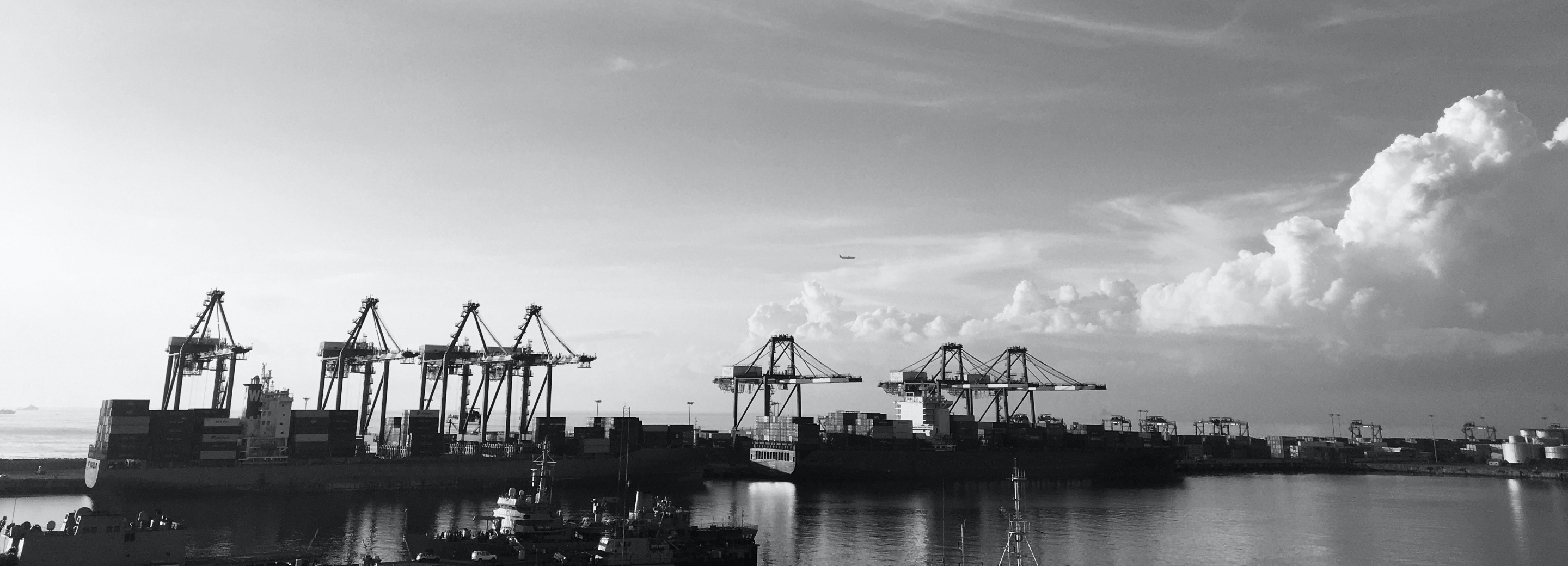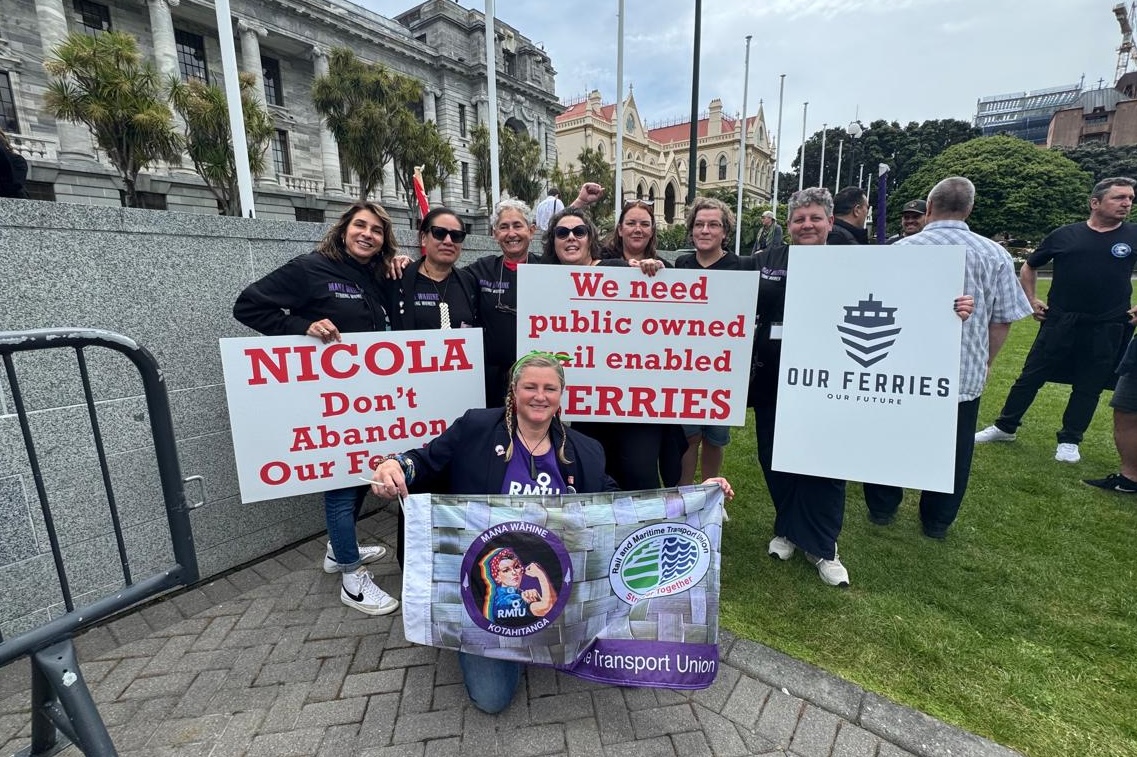
Government U-turns after union campaign, promises new publicly owned, rail-enabled ferries for Cook Strait.
In a huge win for International Transport Workers’ Federation (ITF) affiliates, the Maritime Union of New Zealand (MUNZ) and the Rail and Maritime Transport Union (RMTU), the New Zealand Government has promised to deliver two new, publicly owned and rail-enabled ‘Interislander’ ferries.
The Government’s U-turn comes after a concerted campaign from MUNZ, under the banner “Our Ferries, Our Future”.
“This is a victory for common sense, and an outcome that we’ve been strongly arguing for,” said MUNZ National Secretary, Carl Findlay. “I want to congratulate the membership of our union, not least the crews of the Interislander ferries for their strong support of the ‘Our Ferries, Our Future’ campaign.”
The campaign launched in 2024 after the newly elected National Party Government cancelled the previous Labour Government’s contract to replace the ferries. This sparked fears of an agenda to privatise and de-unionise the ferry service, while also splitting it from the essential rail service.
“Confirmation that the new ferries will be rail-enabled is excellent news for New Zealand’s transport infrastructure,” said Howard Phillips, RMTU National Vice-President. “It guarantees that rail freight will continue to be a significant part of the sustainable supply chain.”
Throughout 2024, the campaign included political lobbying, a public petition signed by more than 10,000 people and protests on the streets of Wellington – joined by ITF affiliate unions from around the world.
The Rail and Maritime Transport Union Inc. (RMTU), New Zealand, the Maritime Union of Australia (MUA), the Norwegian Seafarers’ Union (NSU), the Associated Philippine Seafarers' Union (APSU), the International Longshore and Warehouse Union (ILWU – USA, Canada), the International Longshoremen's Association (ILA - USA) and the All Japan Dockworkers' Union (ZenKowan) were among the ITF affiliates in Wellington showing solidarity with MUNZ.
 ITF Ferry Taskforce Chair, Ronny Øksnes, said: “This victory for MUNZ shows that standing up and fighting back saves jobs and vital public transport services – and at the same time wins huge benefits for communities.
ITF Ferry Taskforce Chair, Ronny Øksnes, said: “This victory for MUNZ shows that standing up and fighting back saves jobs and vital public transport services – and at the same time wins huge benefits for communities.
“I was proud to take to the streets of Wellington to protest alongside MUNZ and our fellow trade unionists from all around the world. It clearly shows that for trade unions an injury to one really is an injury to all: that no matter what, we will always come together to defend each other – and we will win.
“As the world lurches to the right – with the election of far-right governments, rising authoritarianism, and looming trade wars threatening working-class communities – this is the kind of international solidarity that needs to be heard by everyone, everywhere.”
Interislander ferries have provided a critical lifeline service, connecting New Zealand’s North Island and South Island across the Cook Strait, since the 1960s.
 Interislander ferry, 'Kaitaki'. Picture: Sid Mostell.
Interislander ferry, 'Kaitaki'. Picture: Sid Mostell.
The current, ageing fleet of three ferries is publicly run by Kiwi Rail and transports passengers while also performing a vital freight role, transporting trucks and rail wagons.
The new ferries will have a 30-year service life, with the Government saying it is “looking to the long-term". As ITF Maritime Policy Adviser, Sadie Saunders, said in November last year, while concerns about cost are understandable, “transport infrastructure is a long-term investment that ensures good jobs and efficient supply chains”.
Each new ferry will be able to take 1,500 passengers and have 2.4km of lanes for cars and trucks, with 40 rail wagons able to shunt onto specific rail decks.
New Zealand Rail Minister, Winston Peters MP, confirmed the Christmas 2029 timeline for delivery and said that although a new wharf would be built in Picton, plans to build new port terminal buildings and fully renew road and rail masting yards had been scrapped.
MUNZ National Secretary, Carl Findlay added: “There should be no doubt that we will be closely watching developments around reduced expenditure on the new terminals and port infrastructure.”
